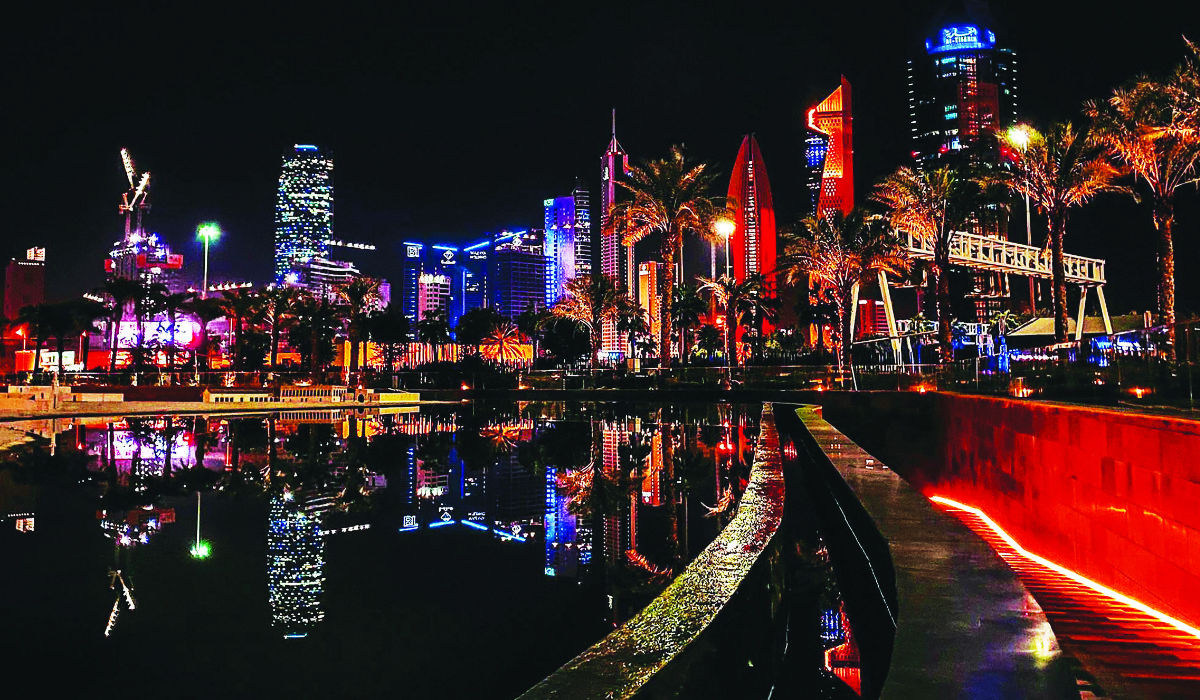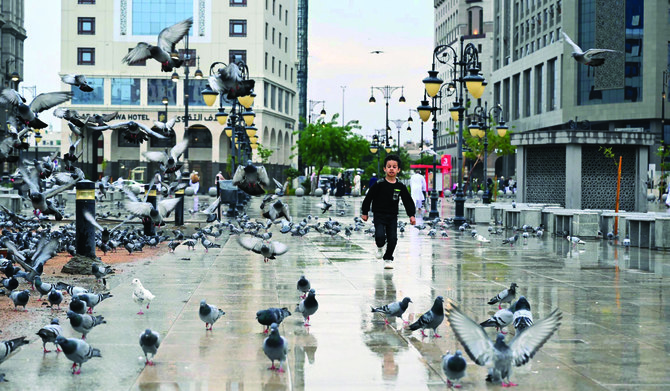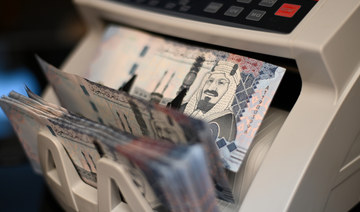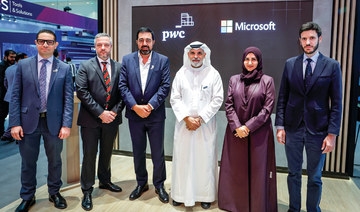RIYADH: Global investment decision-makers and leaders are set to gather at the Future Hospitality Summit in Riyadh to exchange knowledge and explore new partnerships. The summit will be held at Al Faisaliah Hotel from May 7-9.
This year’s conference theme, “Invest in Change,” will emphasize the importance of the positive change that can be brought about by investing in time, intellect and experience to keep up with changing times and trends in order to better influence the hospitality industry’s future.
The three-day conference will be British business events firm The Bench’s sixth industry conference for the Saudi market. It will highlight how to promote the development of Saudi Arabia’s hospitality industry as a vital contributor to the Kingdom’s economic diversification and encourage investment in the tourism industry by showcasing its potential and prospects.

The summit will focus on creating job opportunities for young Saudis by fostering the development of a skilled and talented workforce for the hospitality sector. (SPA)
Furthermore, the summit will focus on creating job opportunities for young Saudis by fostering the development of a skilled and talented workforce for the hospitality sector. It will also emphasize the importance of establishing relationships between the government, business sector and academics to achieve long-term growth in the hospitality industry.
“The demand for our hospitality events in Saudi Arabia continues to grow and with the Kingdom named as the fastest-expanding tourism industry within the G20 countries in the UN World Tourism Organization Tourism Barometer, there will be so much to share about tourism and hospitality investment and development at FHS Saudi Arabia this year,” said Jonathan Worsley, chairman of The Bench.
FASTFACT
This year’s conference theme, “Invest in Change,” will emphasize the importance of the positive change that can be brought about by investing in time, intellect and experience to keep up with changing times and trends in order to better influence the hospitality industry’s future.
The event, which will also feature in-depth discussions about the Kingdom’s cultural legacy and natural assets in order to market it as a prime tourist and business travel destination, is expected to draw 750 delegates from 40 countries and 300 companies.
The official opening of the 2023 edition of FHS Saudi Arabia will take place on May 8 with welcome remarks by Prince Bandar bin Saud bin Khalid, secretary general of the King Faisal Foundation and chairman of the board of directors of Al Khozama, Saudi Arabia’s leading hospitality, property investment, development, and management company.
“The Future Hospitality Summit is in a unique standing, as it is the only investment conference focusing on the hospitality and tourism sector in Saudi Arabia,” Jana Bader, general manager at The Bench in Riyadh, told Arab News.
She added: “FHS is a platform that brings international opportunities to the Saudi market, and Saudi market opportunities to the whole world. Of significance is also the fact that, unlike other conferences, FHS is specifically aimed at investors with a networking power to connect them with the right opportunities and to build relationships that last.”
The first day will be dedicated to the Global Restaurant Investment Forum, which focuses on food and beverage investment and development in the Kingdom and beyond.
Unlike other conferences, the summit is specifically aimed at investors with a networking power to connect them with the right opportunities and to build relationships that last.
Jana Bader, The Bench general manager
The first plenary session will cover a wide range of topics, including the evolution of the Saudi hospitality sector with a market snapshot in the FHS Intelligence Den, a panel discussion on the reinvention of hospitality space, a discussion on the use of immersive technologies such as artificial intelligence and the metaverse, and the business of luxury and well-being in a changing world.
“The Saudi market is bursting with opportunities within different sectors; be it real estate, aviation, food and beverage or hospitality. All those sectors work together and create a smart city ecosystem to cater to the next generation as well as to diversify the country’s economic revenue streams,” Bader explained.
Among others, the fully Public Investment Fund-owned Rua Al Madinah Holding’s CEO Ahmed bin Wasl Al-Juhani will join a panel discussion at FHS. “The flagship project of Rua Al Madinah Holding is the development of the area east of the Prophet’s Mosque in Madinah,” the curtain-raiser press release quoted Al-Juhani as saying.
He stated that the project will add 47,000 hotel rooms, ranging from five-star facilities with direct views of the mosque to two-star lodgings that accommodate a wide range of guests with varying needs and preferences.
“The project aims to enrich the experience of expected 30 million visitors by the year 2030 aligned with the Vision 2030 target,” Al-Juhani added.
A panel discussion on the conference’s core theme will also take place during which industry experts will offer their perspectives on how they are investing in transformation.

Jana Bader, The Bench general manager
Wrapping up the first day there will be a networking reception by The Radisson Hotel Group at Mansard Riyadh, which is a Radisson Collection hotel.
Future hotel development and investment will be the main topic of discussion on the last day of FHS Saudi Arabia.
Among the topics to be discussed are attracting investment in the hospitality industry to accelerate expansion and fuel a sustainable future; destination and hotel development in Saudi Arabia; the evolution of investing in holistic hospitality and activating innovation; and acceleration and investment and urbanization as well as the development of new cities.
Ian Wilson, regional director of hospitality for The Line at NEOM, will take part in a panel discussion about how the hotel, retail and F&B industries are combining to provide customers more value.
Furthermore, Aseel Bondagjy, development lead at NEOM, and Mae Al-Mozaini, founder and CEO of The Arab Institute for Women’s Empowerment, Nusf, which is a Saudi-based institute focusing on empowering women in executive positions, will be on a panel discussing how to inspire the following generation of workers, where to educate them, and where to find talent.
Additionally, two-stage case studies will be covered, underlining the Kingdom’s lifestyle funds and how the public and private sectors are cooperating to make Vision 2030 a reality.
The final stop on FHS Saudi Arabia will be Diriyah Gate, a 7 sq. km mixed-use historic, cultural and lifestyle attraction that is slated to become the historical and cultural hub of the Kingdom.
New at FHS Saudi Arabia this year is the ‘Battle of the Brands.’ A platform for innovative and sustainable hotel concepts, the event will be assessed by a distinguished team of judges, offering a special chance for hoteliers and business owners to introduce their new brands to the Saudi market.
“Research indicates that Saudi hotel owners and developers are seeking fresh brand concepts to complement existing brands that are already in the market. This will be the ultimate platform for innovative and sustainable hotel concepts to showcase their brands that have yet to launch in the exciting hospitality landscape of Saudi Arabia,” according to a curtain-raiser press release.
In 2022, the FHS drew over 500 attendees from more than 20 countries, 110 speakers, and 46 sponsors and partners. The Kingdom hosted the first FHS in October 2020, which was organized by the Ministry of Tourism and the G20 Saudi Secretariat, and attended by more than 6,000 people from around the world.




















